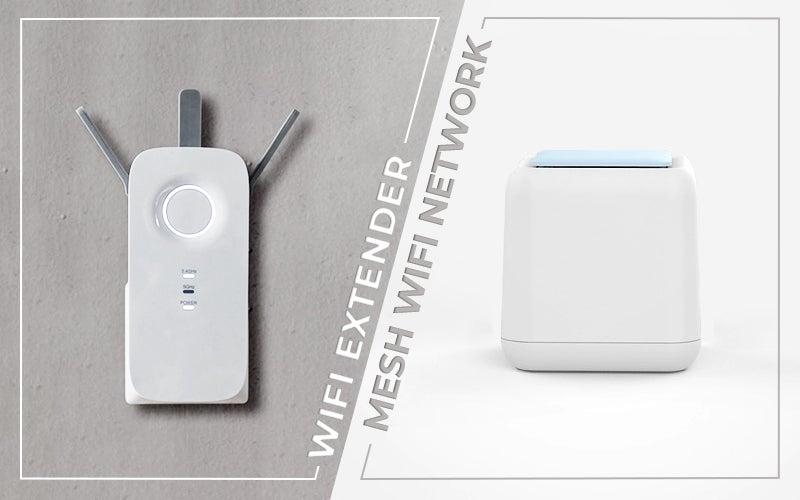There are many different wifi devices on the market. But to know the exact criteria, it is important to know the pros and cons of both the devices, to have a clear idea of these devices. Some researchers tell us to mesh wifi extender is a great choice for homes where there is a poor signal. And there are also reports that you have to double the power of the signal, so you need mesh networks.
Features of Wifi extenders
You can use an Ethernet wire or wifi to connect these to your current network with great compatibility.
To take advantage of the greater WiFi connection, it can set up a separate network for your wireless devices.
Advantages:
-
The ability to choose a better channel: If the WiFi extender has two radios, one radio can be used to connect with the Root, and the other radio can be set to a channel distinct from the Root—avoiding interfering channels.
-
Successfully removes WiFi dead zones and provides quick Internet access
-
One of the more affordable choices for network upgrade
Disadvantages:
A. Some routers may not work well with it
B. Large homes with several floors are not a good fit
C. It's difficult to configure, and if there are multiple, each one must be set up separately
D. You have to manually connect your device to the new network.
Features of Mesh networks
-
It consists of numerous routers that are dispersed all over your house and function as individual nodes.
-
To boost the WiFi signal and widen the WiFi coverage in your home, each node talks to the others. Your current wireless network is replaced by this multi-node configuration.
Advantages:
-
Creates a single, large WiFi network for them to connect to;
-
It is simple to configure (typically remotely via a mobile app);
-
self-organizes when a node is removed so as not to impair the network's performance;
-
It provides redundancy so that there is a 100 percent stable connection and no downtime due to node failure.
Disadvantages
a. One of the more expensive alternatives for network improvement
b. It also replaces your current network, eliminating the need for your current router
-
It necessitates the usage of various devices across your house.
-
For smaller residences when such a large-scale solution isn't required, it can become extravagant and expensive.
Which one is the best?
Both the devices have the same goal. So, both are best. We have written a short test for you to have a clear idea about these devices.
-
Home: If your existing wifi signal is not present in a particular room or your backyard area, then you need a mesh wifi extender. But if there is no signal in all of the rooms, you probably need to buy a mesh network.
-
Configuration: Mesh networks are easy to configure. Since all of the nodes in a mesh network function as a single network, you won't need to bother about changing SSIDs all throughout your house. A wifi extender, on the other hand, takes more effort to set up and install initially, but it doesn't replace your current network, allowing you to keep your current router.
-
Cost: A good WiFi extender can cost as little as $50, whereas mesh networks can cost up to $300. While mesh networks are a totally new network arrangement that calls for numerous additional devices to be deployed throughout your home, WiFi extenders are only an addition to your current network setup.

